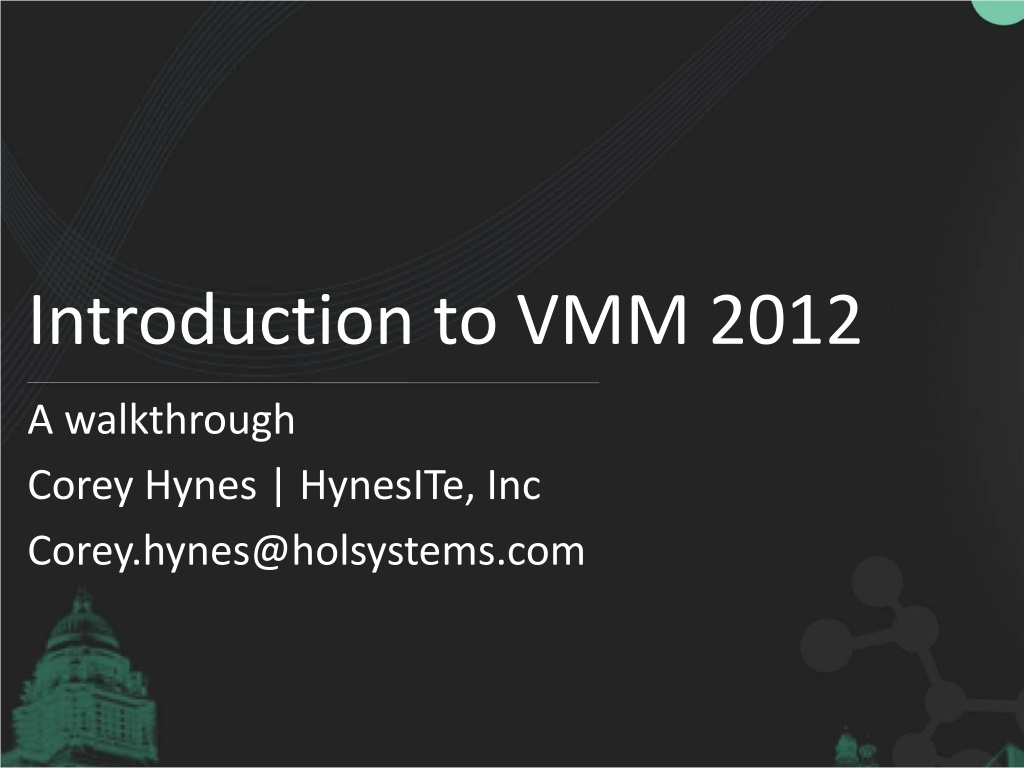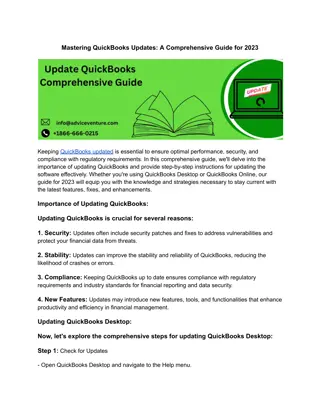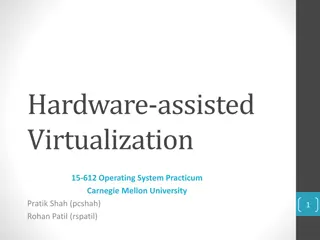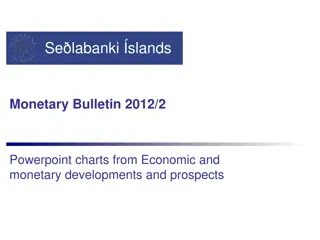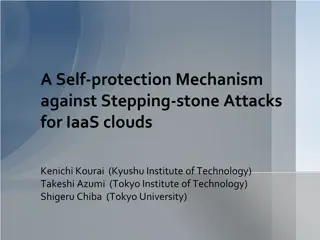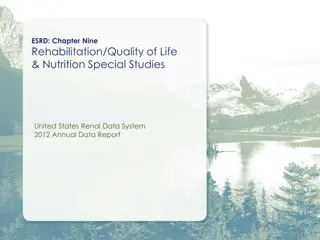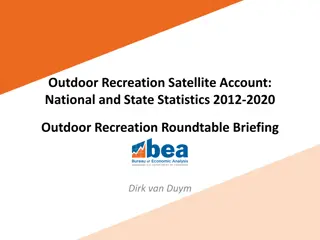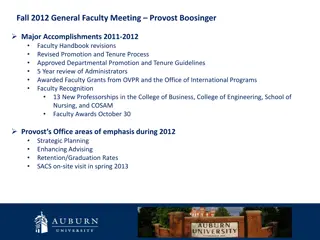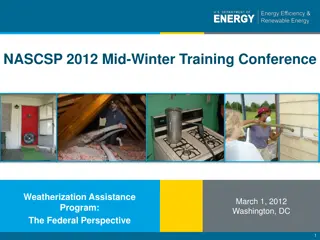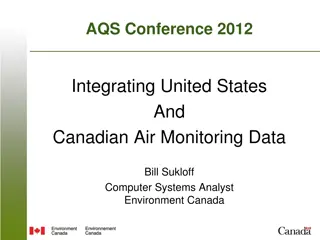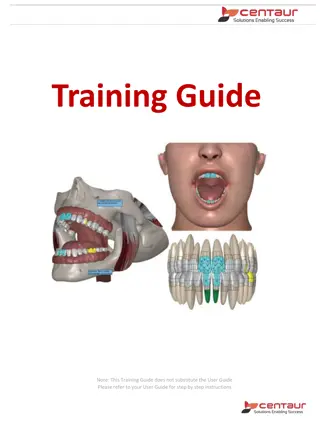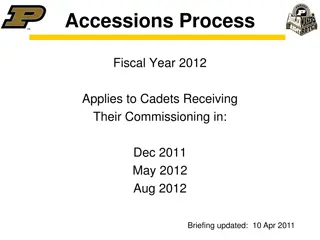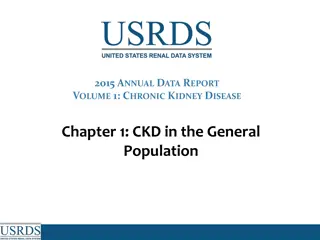Introduction to VMM 2012: A Comprehensive Guide
In this walkthrough, explore the core investment areas of SCVMM 2012, cloud benefits, deployment, upgrade strategies, and fabric management. Discover how SCVMM 2012 brings cloud advantages to enterprise data centers through its automation, agility, and reliability features.
Download Presentation

Please find below an Image/Link to download the presentation.
The content on the website is provided AS IS for your information and personal use only. It may not be sold, licensed, or shared on other websites without obtaining consent from the author.If you encounter any issues during the download, it is possible that the publisher has removed the file from their server.
You are allowed to download the files provided on this website for personal or commercial use, subject to the condition that they are used lawfully. All files are the property of their respective owners.
The content on the website is provided AS IS for your information and personal use only. It may not be sold, licensed, or shared on other websites without obtaining consent from the author.
E N D
Presentation Transcript
Introduction to VMM 2012 A walkthrough Corey Hynes | HynesITe, Inc Corey.hynes@holsystems.com
SCVMM 2012 Investment Areas Fabric Deployment Cloud Services Fabric Infrastructure Cloud Service Management Management Management Enhancements Application Owner Usage Hyper-V Bare Metal Provisioning HA VMM Server Service Templates Update Management Hyper-V, Dynamic Optimization Capacity and Capability Application Deployment VMware, Citrix XenServer Upgrade Custom Command Execution Network Management Power Custom properties Management Delegation and Quota Storage Management Cluster Management Image Based Servicing Powershell
Cloud Benefits Reliability and predictability Applications are highly available, fault tolerant Remediation from failure is simple (re-start, re-deploy) Highly automated Ratio of servers/admins is ~50:1 in enterprises today Ratio of servers/admins is ~500:1 in cloud datacenters Agility and speed Applications are deployed, changes are made, remediation is executed in minutes Deploying applications takes weeks in the enterprise and it needs to be days Focus is on applications/services Results are measured relative to service quality SCVMM 2012 is designed to bring cloud benefits to the enterprise datacenter
Deployment and Upgrade Highly Available VMM Server Addresses key customer ask VMM server is now cluster aware so there s no single point of failure Upgrade From VMM 2008 R2 to VMM 2012 RC From VMM 2012 RC to VMM 2012 RTM Custom Properties Name/Value pairs No need to use Custom1 Custom10 Powershell Fully powershell scriptable Powershell 2.0 standard verbs, noun naming convention Backward compatible with VMM 2008 R2 scripting interface
Fabric Management Physical Server Manage multiple hypervisors Hyper-V, VMware, Xen Server hardware management IPMI, DCMI, SMASH, Custom via Provider Host provisioning from baremetal to Hyper-V to Cluster provisioning Network Define Logical Networks using VLANs and Subnets per datacenter location Address management for Static IPs, Load Balancer VIPs and MAC addresses Automated provisioning of Load Balancers via Provider Storage Storage Management using SMI-S Discover storage arrays and pools Classify storage based on throughput and capabilities Discover or configure LUNs and assign to hosts and clusters Rapid provisioning of VMs using snap cloning of LUNs
Fabric Management Update Management of Fabric Servers Update operation control (On-demand scan and on-demand remediation) Updating a Hyper-V cluster is fully automated Integrated with Windows Server Update Server Dynamic Optimization (DO) Cluster level workload balancing scheme to optimize for VM performance Leverages live migration to move workloads Power Optimization (PO) Leverages live migration to pack more VMs per host Powers down servers to optimize for power utilization Enhanced Placement Over 100 placement checks/validation Support for custom placement rules Multi-VM deployment for Services
Private Clouds Private Cloud Abstraction that enables opaque usage model for service and VM management Fabric Compute: Logical grouping of hosts or clusters in host groups Storage: Storage Classifications, Pools, Providers and Arrays Network: Logical Networks, IP/MAC Address Pools, Load Balancers, VIP Templates Delegation - User Role Quota: Defines per-user limits on compute, memory, storage, number of VMs
Cloud Capacity Cloud can expose Aggregate capacity of underlying resources (vCPU, Memory, Storage) Oversubscription is allowed Dimensions of Capacity vCPUs Memory Storage Number of deployed VMs (VMs in Library are not counted) Custom Quota (to support quota points from VMM 2008 R2)
Cloud Capabilities Cloud can Host highly available VMs Allow VMs to use dynamic disks or differencing disks Enable network optimizations VM shape limits Processor Range (i.e. 1 - 4) Memory Range (i.e. 16MB 32 GB) Number of disks (0 7) Number of NICs (0 7) Built-in set representing underlying limits for Hyper-V, Xen, VMware
Self-Service Users Revocable actions fine-grained action control Author, VM Control, Read-only Quota 2 Types of Quota Shared total usage of all members of the user role Per-user usage of each member of the user role Dimensions of Quota vCPUs Memory Storage Number of deployed VMs (VMs in Library are not counted) Custom Quota (to support quota points from VMM 2008 R2)
Service Lifecycle Management Service Templates Used to model a multi-tier application Source of truth for deployed service configuration Applications Built-in support for Web deploy, Server App-V, SQL DAC Custom command execution for other application packages Image-based OS separated from apps Composed during deployment Servicing Change the template and then apply that change to deployed instances Upgrade domains ensures application availability during servicing
Services - Shareable Among Application Owners An application owner authors the service template and then shares that template with his team to deploy the application Shareable Objects Resource group group of on-disk library objects which user considers interchangeable Profiles (Hardware, Guest OS, Application, SQL) Templates (VM, Service) Virtual machine Service
Stay up to date with TechNet Belux Register for our newsletters and stay up to date: http://www.technet-newsletters.be Technical updates Event announcements and registration Top downloads Join us on Facebook http://www.facebook.com/technetbe http://www.facebook.com/technetbelux Download MSDN/TechNet Desktop Gadget http://bit.ly/msdntngadget LinkedIn: http://linkd.in/technetbelux/ Twitter: @technetbelux
TechDays 2011 On-Demand Watch this session on-demand via TechNet Edge http://technet.microsoft.com/fr-be/edge/ http://technet.microsoft.com/nl-be/edge/ Download to your favorite MP3 or video player Get access to slides and recommended resources by the speakers
